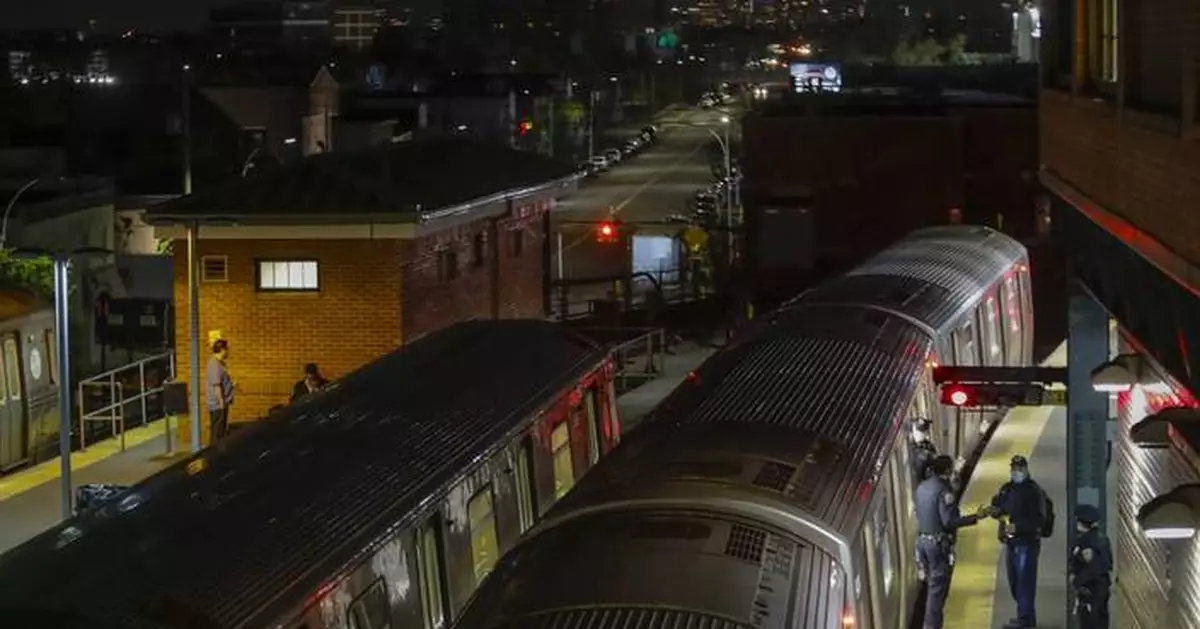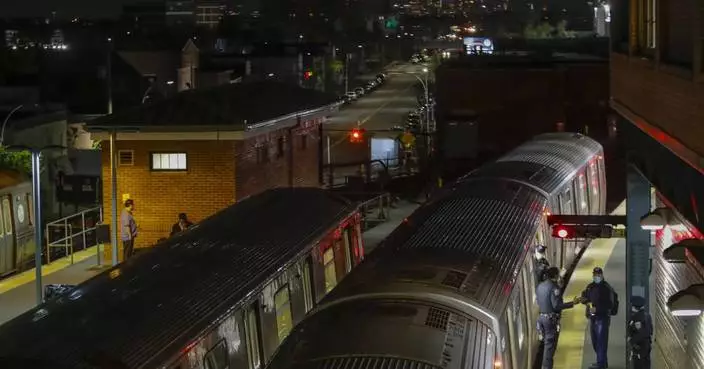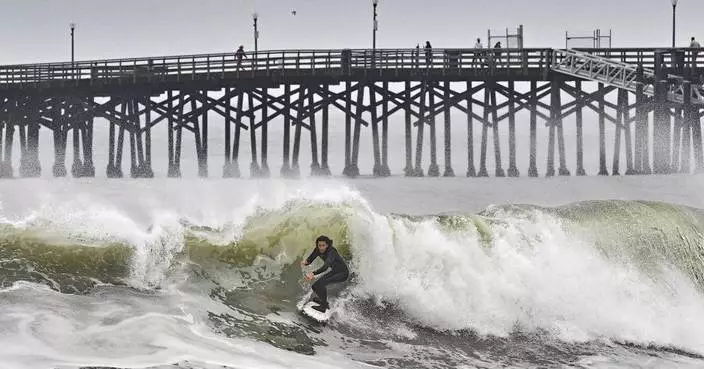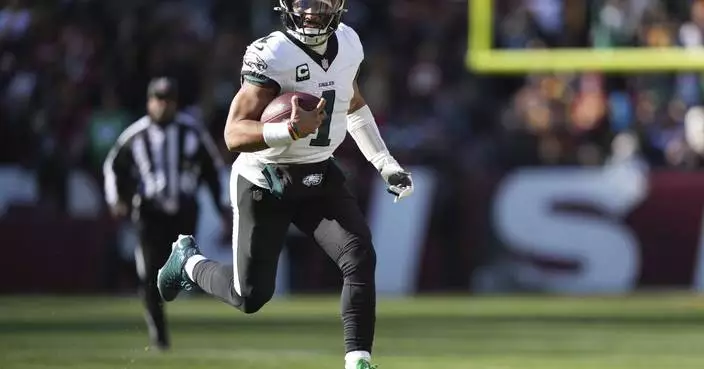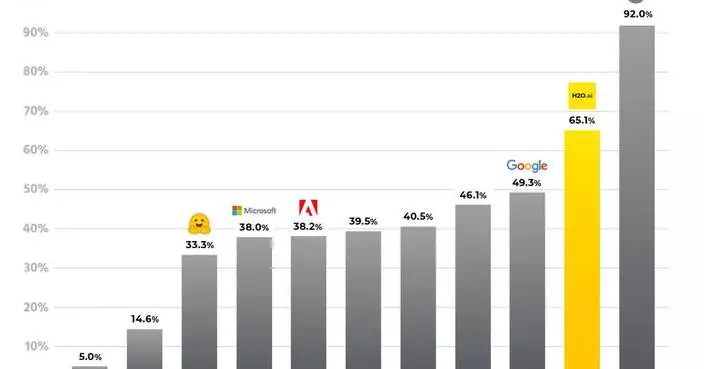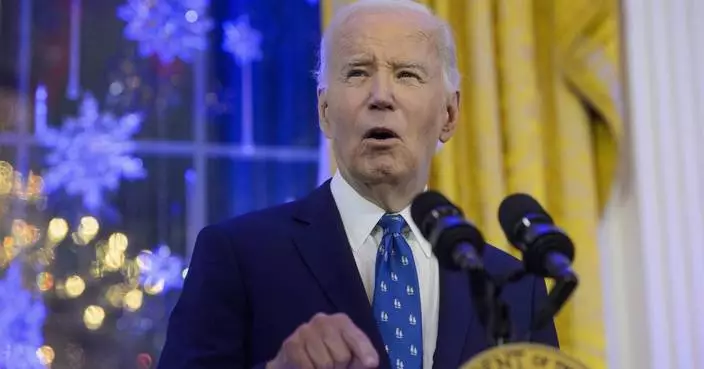A man is facing murder and arson charges in New York City for allegedly setting a woman on fire inside a subway train and then watching her die after she was engulfed in flames, police said Monday.
The suspect, identified by police as Sebastian Zapeta, was taken into custody hours after the woman died on Sunday morning.
Zapeta, 33, is a Guatemalan citizen who entered the U.S. illegally after he had been previously removed in 2018, said Jeff Carter, a spokesman for U.S. Immigration and Customs Enforcement.
Surveillance video showed the suspect approach the woman, who was sitting motionless and may have been sleeping, on a stationary F train at the Coney Island-Stillwell Avenue subway station in Brooklyn and set her clothing on fire, police said.
The woman's clothing "“became fully engulfed in a matter of seconds,” said Jessica Tisch, the New York City police commissioner, while the suspect remained at the scene, watching her burn from a bench on the subway platform as police and a transit worker extinguished the flames.
The woman was pronounced dead at the scene. Police have not yet released her identity.
Tisch called the incident “one of the most depraved crimes one person could possibly commit against another human being.”
Police arrested Zapeta later Sunday, riding the same subway line, after getting a tip from a group of high school students who recognized images of the suspect that were circulated by police.
It is unclear when and where Zapeta reentered the U.S. after being removed about six years ago.
In a statement, Brooklyn District Attorney Eric Gonzalez said, “The depravity of this horrific crime is beyond comprehension, and my office is committed to bringing the perpetrator to justice."
“This gruesome and senseless act of violence against a vulnerable woman will be met with the most serious consequences,” he said.
It was unclear if Zapeta has an attorney or when he would be arraigned.
A Brooklyn address for Zapeta released by police matches a service center for Samaritan Daytop Village, which provides housing and substance abuse support. The organization did not immediately respond to a request for comment.
New York Gov. Kathy Hochul this year has sent New York National Guard members to the city’s subway system to help police conduct random searches of riders’ bags for weapons following a series of high-profile crimes on city trains. Hochul recently deployed additional members to help patrol during the holiday season.
About a year ago, Hochul supported funding to install video cameras on every train car in the New York subway system, said Michael Kemper, chief security officer for the Metropolitan Transportation Authority. He and other officials on Sunday credited the cameras with helping to track down the suspect so quickly.
Associated Press writer Cedar Attanasio contributed to this report.
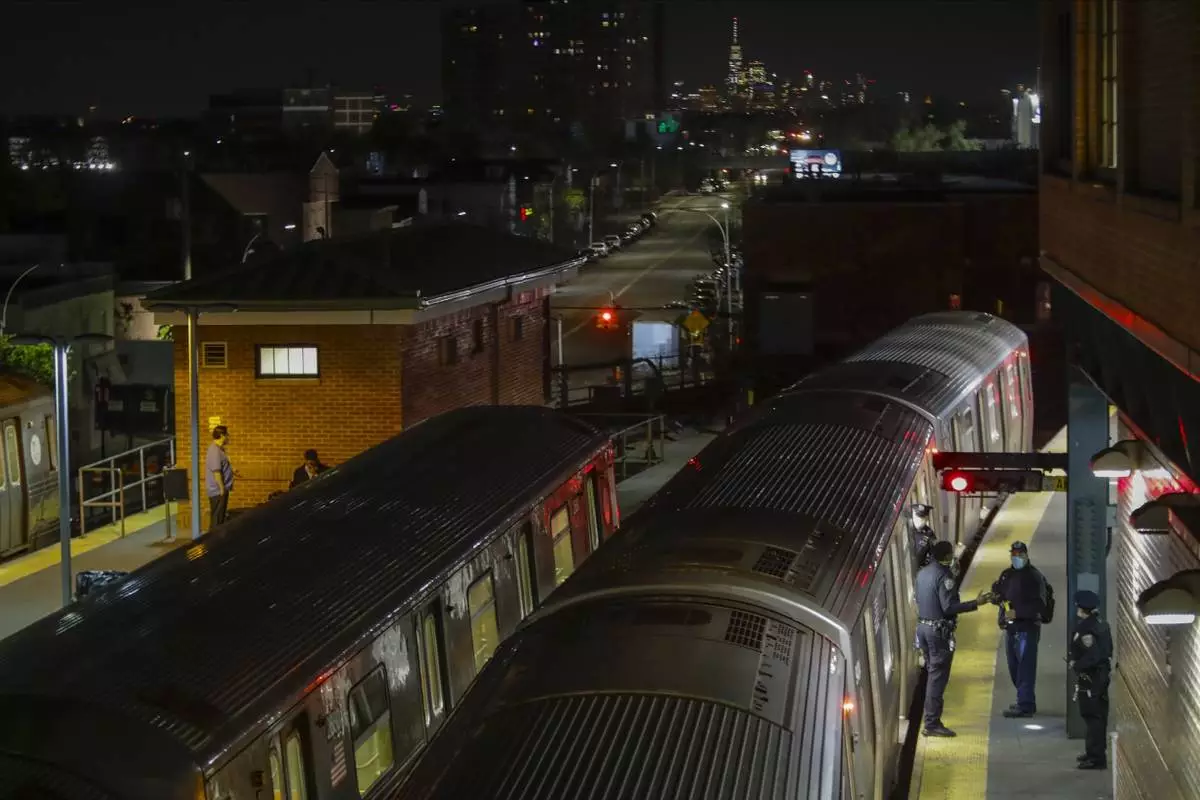
FILE - New York Police officers clear a train at the Coney Island Stillwell Avenue Terminal, May 5, 2020, in the Brooklyn borough of New York. (AP Photo/Frank Franklin II, file)
BOGOTÁ, Colombia (AP) — One of Colombia’s legendary drug lords and a key operator of the Medellin cartel has been deported back to the South American country, after serving 25 years of a 30-year prison sentence in the United States.
A short while later, Fabio Ochoa was again a free man.
Ochoa arrived in Bogota’s El Dorado airport on a deportation flight on Monday, wearing a grey sweatshirt and carrying his personal belongings in a plastic bag. After stepping out of the plane, the former cartel boss was met by immigration officials in bullet proof vests. There were no police on site to detain him.
Colombia’s national immigration agency promptly posted a brief statement on the social media platform X, saying Ochoa was “freed so that he could join his family” after immigration officials took his fingerprints and confirmed through a database that he is not wanted by Colombian authorities.
Ochoa, 67, and his older brothers amassed a fortune when cocaine started flooding the U.S. in the late 1970s and early 1980s, according to U.S. authorities, to the point that in 1987 they were included in the Forbes Magazine’s list of billionaires.
Living in Miami, Ochoa ran a distribution center for the cocaine cartel once headed by Pablo Escobar. Escobar died in a shootout with authorities in Medellin in 1993.
Ochoa was first indicted in the U.S. for his alleged role in the 1986 killing of Barry Seal, an American pilot who flew cocaine flights for the Medellin cartel, but became an informant for the Drug Enforcement Administration.
Along with his two older brothers, Juan David and Jorge Luis, Ochoa turned himself in to Colombian authorities in the early 1990s under a deal in which they avoided being extradited to the U.S.
The three brothers were released from prison in 1996, but Ochoa was arrested again three years later for drug trafficking and was extradited to the U.S. in 2001 in response to an indictment in Miami naming him and more than 40 people as part of a drug smuggling conspiracy.
He was the only suspect in that group who opted to go to trial, resulting in his conviction and a 30-year sentence. The other defendants got much lighter prison terms because most of them cooperated with the government.
Ochoa’s name has faded from popular memory as Mexican drug traffickers take center stage in the global drug trade.
But the former member of the Medellin cartel was recently depicted in the Netflix series Griselda, where he first fights the plucky businesswoman Griselda Blanco for control of Miami's cocaine market, and then makes an alliance with the drug trafficker, played by Sofia Vergara.
Ochoa is also depicted in the Netflix series Narcos, as the youngest son of an elite Medellin family that is into ranching and horse breeding and cuts a sharp contrast with Escobar, who came from more humble roots.
Richard Gregorie, a retired assistant U.S. attorney who was on the prosecution team that convicted Ochoa, said authorities were never able to seize all of the Ochoa family’s illicit drug proceeds and he expects that the former mafia boss will have a welcome return home.
“He won’t be retiring a poor man, that’s for sure,” Gregorie told The Associated Press earlier this month.
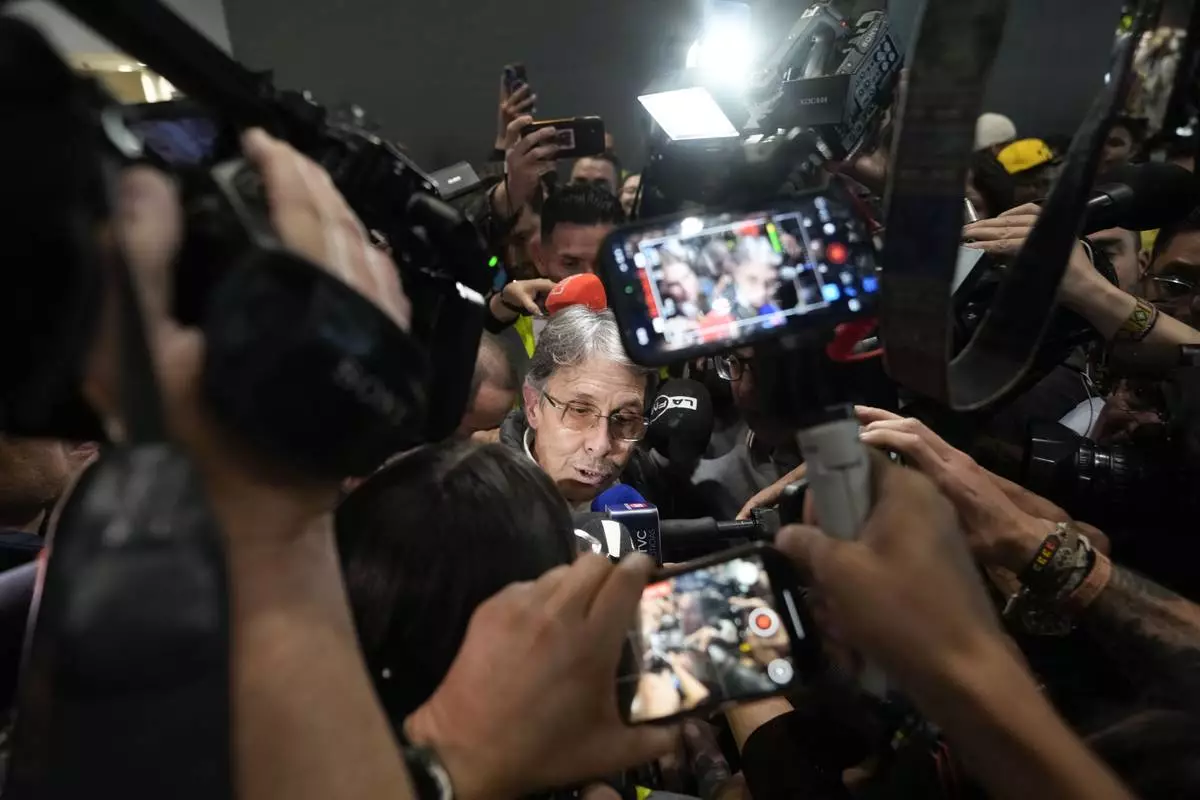
Fabio Ochoa, a former member of Cartel of Medellin, speaks to the media upon his arrival at El Dorado airport, after being deported from the United States, in Bogota, Colombia, Monday, Dec. 23, 2024. (AP Photo/Fernando Vergara)
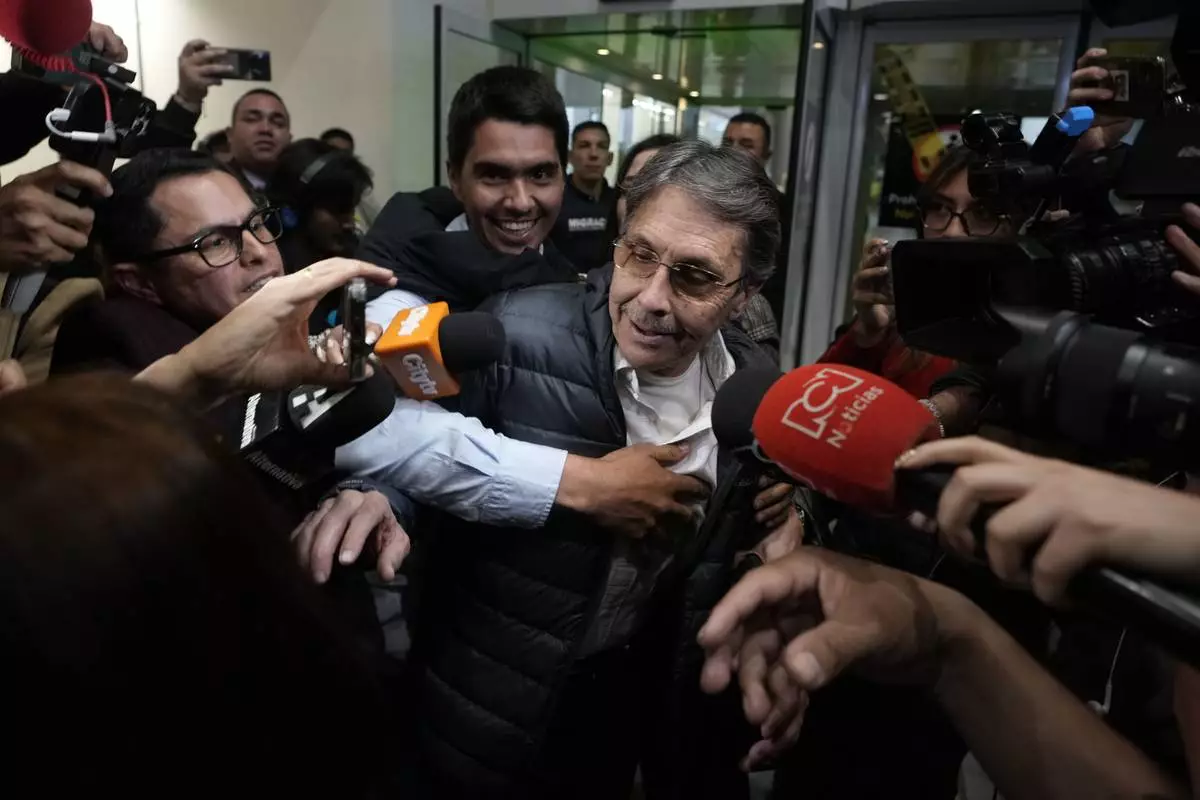
Media swarm Fabio Ochoa, center, a former member of Cartel of Medellin, upon his arrival at El Dorado airport, after being deported from the United States, in Bogota, Colombia, Monday, Dec. 23, 2024. (AP Photo/Fernando Vergara)
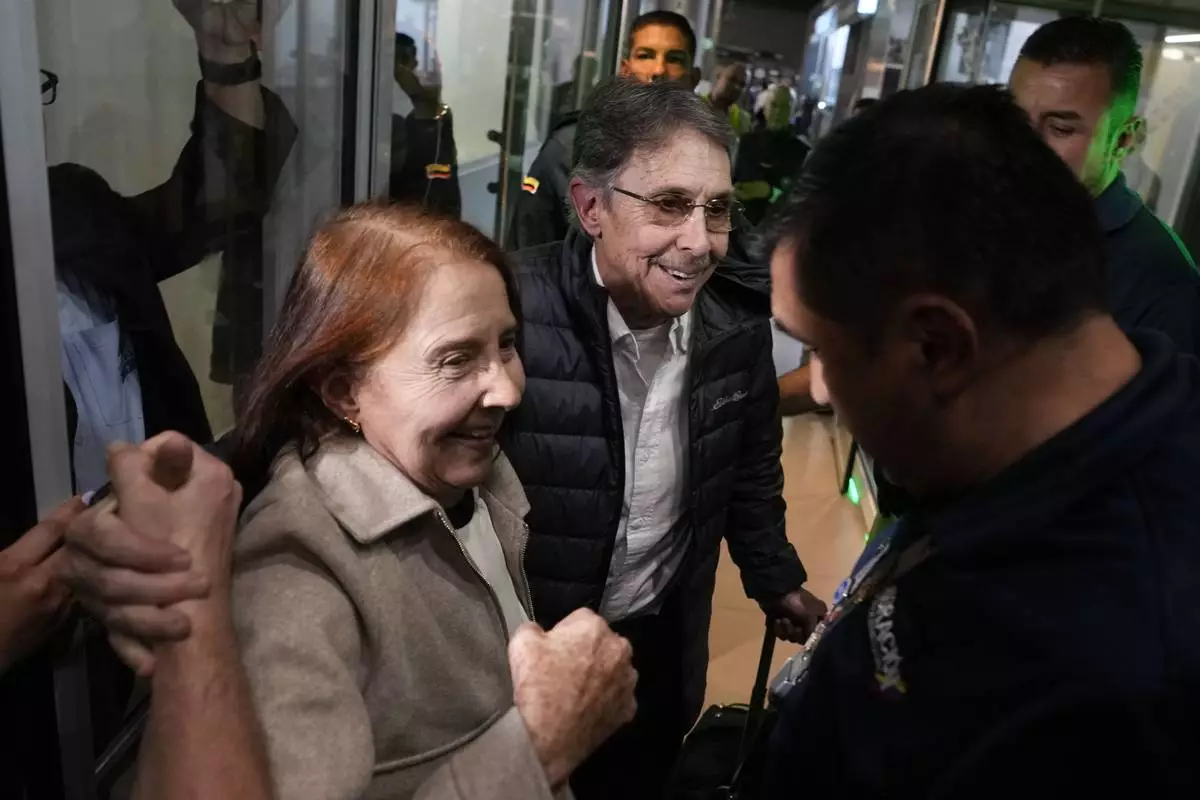
Fabio Ochoa, center, a former member of Cartel of Medellin, is welcomed by relatives upon arriving at El Dorado airport after being deported from the United States, in Bogota, Colombia, Monday, Dec. 23, 2024. (AP Photo/Fernando Vergara)
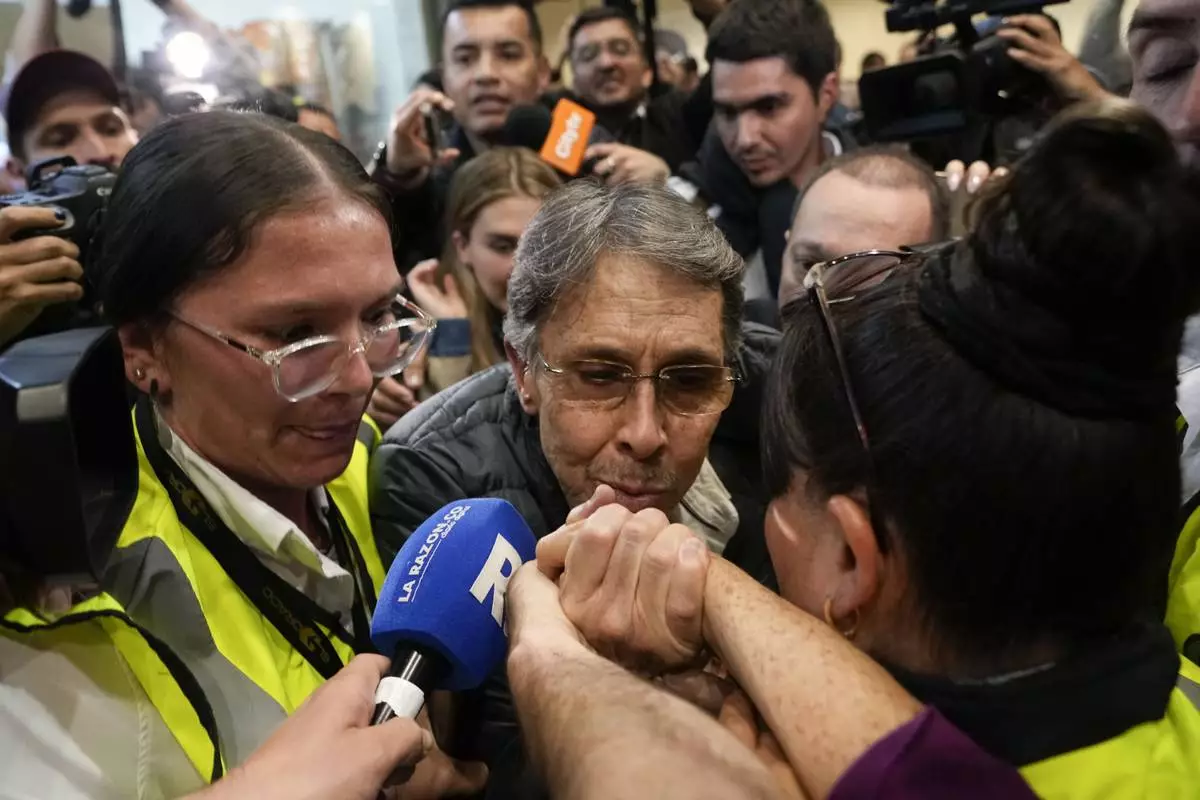
Fabio Ochoa, center, a former member of Cartel of Medellin, kisses a relative's hand upon his arrival at El Dorado airport, after being deported from the United States, in Bogota, Colombia, Monday, Dec. 23, 2024. (AP Photo/Fernando Vergara)
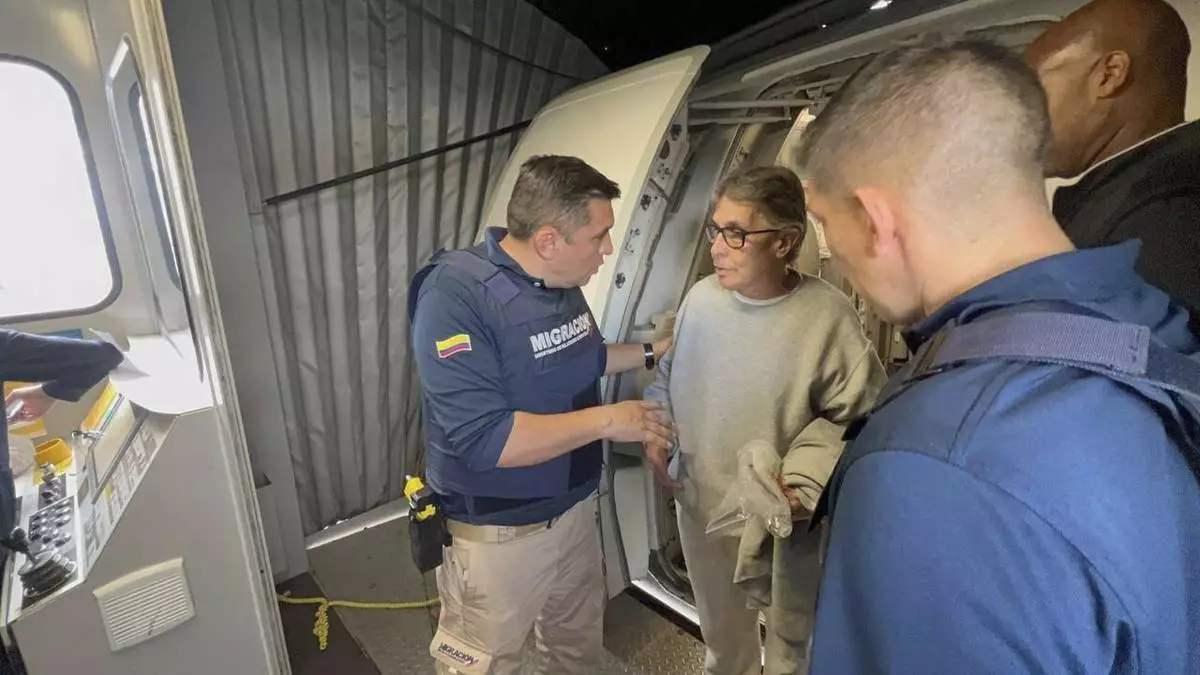
This photo released by the Colombian Immigration press office shows Colombian Fabio Ochoa, a former member of Cartel of Medellin, deplaning at the El Dorado International Airport in Bogota, Colombia, after being deported from the U.S. where he served time for drug trafficking, Monday, Dec. 23, 2024. (Colombian Immigration via AP)



